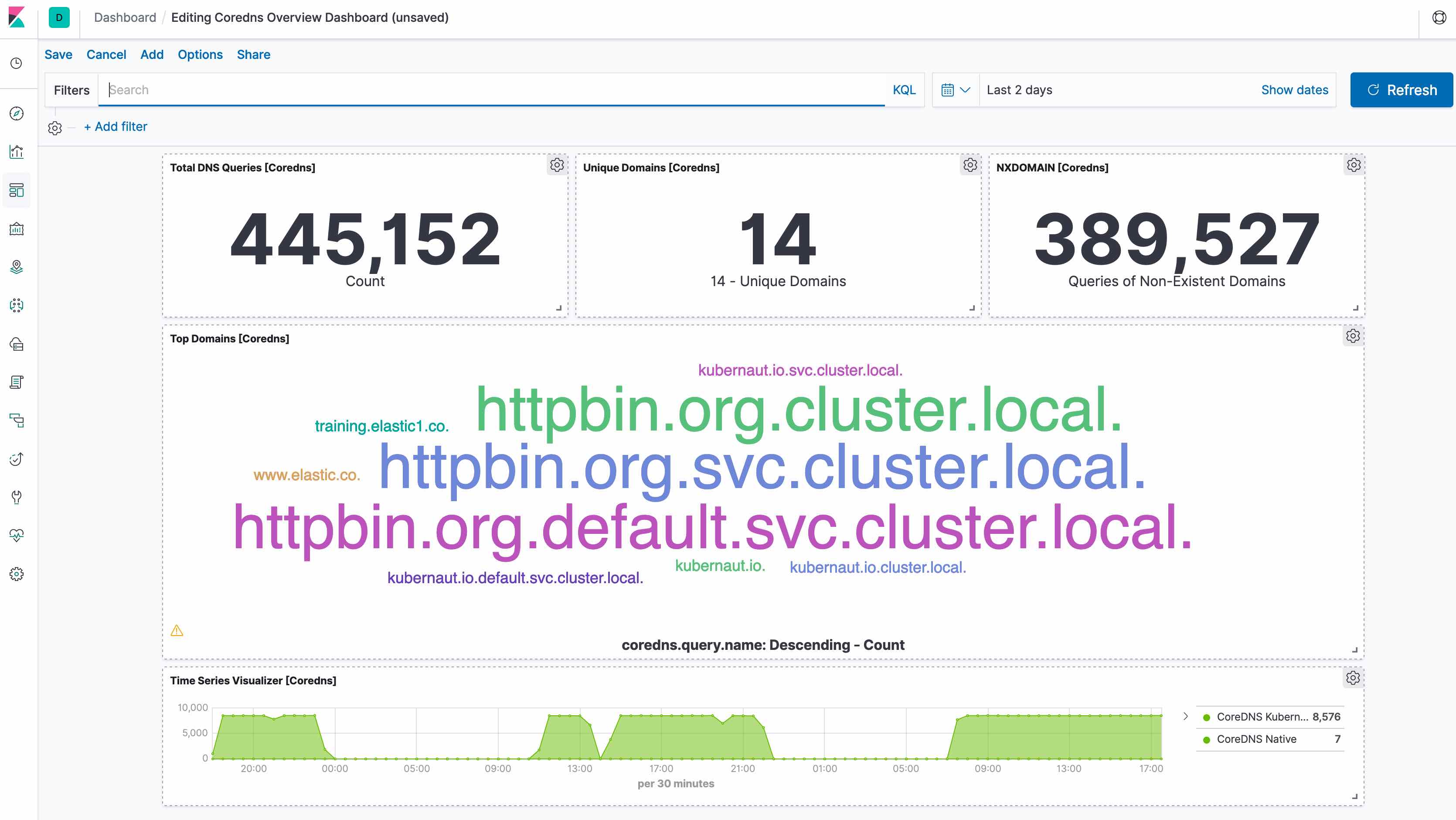CoreDNS module
editCoreDNS module
editThis is a filebeat module for CoreDNS. It supports both standalone CoreDNS deployment and CoreDNS deployment in Kubernetes.
Read the quick start to learn how to configure and run modules.
Compatibility
editAlthough this module has been developed against Kubernetes v1.13.x, it is expected to work with other versions of Kubernetes.
Configure the module
editYou can further refine the behavior of the coredns module by specifying
variable settings in the
modules.d/coredns.yml file, or overriding settings at the command line.
You must enable at least one fileset in the module. Filesets are disabled by default.
Variable settings
editEach fileset has separate variable settings for configuring the behavior of the
module. If you don’t specify variable settings, the coredns module uses
the defaults.
For advanced use cases, you can also override input settings. See Override input settings.
When you specify a setting at the command line, remember to prefix the
setting with the module name, for example, coredns.log.var.paths
instead of log.var.paths.
log fileset settings
editExample config:
- module: coredns
log:
enabled: true
var.paths: ["/var/log/coredns.log"]
var.tags: ["coredns", "staging"]
-
var.paths -
An array of glob-based paths that specify where to look for the log files. All
patterns supported by Go Glob
are also supported here. For example, you can use wildcards to fetch all files
from a predefined level of subdirectories:
/path/to/log/*/*.log. This fetches all.logfiles from the subfolders of/path/to/log. It does not fetch log files from the/path/to/logfolder itself. If this setting is left empty, Filebeat will choose log paths based on your operating system. -
var.tags - An array of tags describing the monitored CoreDNS setup.
Example dashboard
editThis module comes with a sample dashboard.

Fields
editFor a description of each field in the module, see the exported fields section.